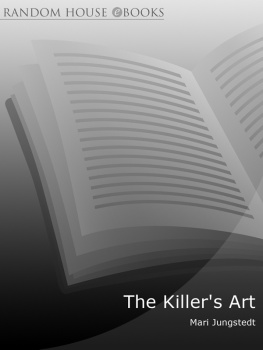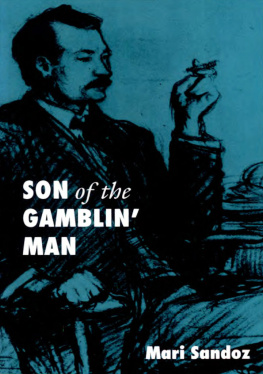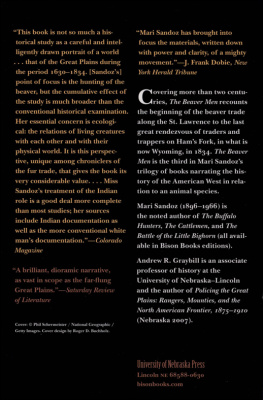Mari Jungstedt - Unknown
Here you can read online Mari Jungstedt - Unknown full text of the book (entire story) in english for free. Download pdf and epub, get meaning, cover and reviews about this ebook. genre: Detective and thriller. Description of the work, (preface) as well as reviews are available. Best literature library LitArk.com created for fans of good reading and offers a wide selection of genres:
Romance novel
Science fiction
Adventure
Detective
Science
History
Home and family
Prose
Art
Politics
Computer
Non-fiction
Religion
Business
Children
Humor
Choose a favorite category and find really read worthwhile books. Enjoy immersion in the world of imagination, feel the emotions of the characters or learn something new for yourself, make an fascinating discovery.

- Book:Unknown
- Author:
- Genre:
- Rating:5 / 5
- Favourites:Add to favourites
- Your mark:
- 100
- 1
- 2
- 3
- 4
- 5
Unknown: summary, description and annotation
We offer to read an annotation, description, summary or preface (depends on what the author of the book "Unknown" wrote himself). If you haven't found the necessary information about the book — write in the comments, we will try to find it.
Unknown — read online for free the complete book (whole text) full work
Below is the text of the book, divided by pages. System saving the place of the last page read, allows you to conveniently read the book "Unknown" online for free, without having to search again every time where you left off. Put a bookmark, and you can go to the page where you finished reading at any time.
Font size:
Interval:
Bookmark:
Mari Jungstedt
Unknown
PROLOGUE
VERNAL EQUINOX,
SATURDAY, MARCH 20
From a distance only a faint light was visible. Igors Bleidelis spied it in his binoculars as the Estonian freighter passed the jetty on its way out of Visby Harbor. He was standing on deck on the port side. Dusk had settled over the desolate harbor, and the glaring lights of the ferry terminal were coming on.
The boat was moving away from the medieval city with its tall merchant houses, the ring wall twenty feet high, and the cathedral, whose black tower rose up toward the sky. The buildings surrounding the harbor seemed deserted; the windows were like black, unseeing eyes in their facades. Only a few fishing boats were rocking uneasily at the wharf.
Almost all the restaurants were closed at this time of year. Not a soul was on the streets. He saw only a solitary car waiting for the ferry down by the harbor. The city was as dead in the winter as it was lively in the summer.
Bleidelis shivered in his oilskins. His nose was running. The air was cold and raw, and the wind was blowing, as always. A craving for nicotine had driven him out on deck. Behind the funnel he found some degree of shelter, and he dug out the crumpled pack from his breast pocket. After several attempts he managed to light his cigarette. The wind was icy on his face, and the chill air ruthlessly slipped inside his collar.
He yearned for a warm bed, he yearned to sink into his wife's soft embrace. He had been away from home for ten days, but it felt longer.
He raised the binoculars to survey the coastline. The steep cliffs dropped straight down to the sea. Beyond the harbor on this side there were only a few houses. He let the binoculars pan across the rock face. From where he was standing, the island seemed barren and inhospitable.
Darkness fell quickly. He tossed his cigarette butt overboard and was just about to return belowdecks when the light suddenly grew stronger. Flames appeared on a cliff jutting out into the sea.
He stopped and raised his binoculars once again, adjusting the focus as best he could. High up on the cliff a fire was blazing against the dark sky. Like a Walpurgis Night bonfire, but in March. He glimpsed the shadowy figures of people around the fire; they seemed to be holding burning torches in their hands. Their silhouettes were moving rhythmically, according to a set pattern. Someone held up an object and hurled it into the flames. That was all he could make out from such a distance. The next moment the freighter had moved past, and the light disappeared from his horizon.
Bleidelis lowered his binoculars and cast one last look at the rocky cliff before he opened the door to the cabin and went in out of the cold.
MONDAY, JUNE 28
Below Frojel Church the fields of rapeseed and other crops spread out like yellow and green carpets all the way down to the sea. In one corner of the fields a motley bunch of people was digging. Occasionally a head would stick up above the tall grass whenever someone straightened up to stretch out an aching back or change position: a white cap, a straw hat, a pirate's bandanna, long hair that a woman twisted into a coil and held on top of her head for a moment in an attempt to find some relief before she let the tresses fall back over her shoulders. Beyond the bowed backs the shimmering waters of the Baltic were visible as an auspicious blue backdrop. Bumblebees and wasps buzzed among the bright red poppies; the oats rippled gently back and forth as a light breeze drifted past. Otherwise the air was practically motionless. A high-pressure system from Russia had moved in over Gotland and had remained parked there for a week.
Twenty or so archaeology students were methodically excavating what had once been a Viking Age harbor a thousand years in the past. It was hard work that required patience.
Martina Flochten from the Netherlands was squatting down in a pit, scraping at stones and earth with a trowel. She was using the small tool eagerly but cautiously so as not to damage any potential finds. Now and then she would pluck out a stone and toss it into the black plastic bucket beside her.
Now the fun part had started. After a couple of weeks of fruitless digging, she had finally been rewarded for all her efforts a few days ago. She had found several silver coins and some glass beads. The feeling she got from holding objects that no human being had touched since the ninth or tenth century was just as strong for her every time. It started her imagination going, thinking about how the people in this place had once lived. What woman had worn these beads? Who was she, and what thoughts had passed through her mind?
Martina was one of the foreign participants in the course. Almost half the students came from other countries. There were two Americans, a British woman, a Frenchman, a Canadian whose family had originally come from India, a couple of Germans, and an Australian named Steven. This was part of his around-the-world journey; Steven was traveling to sites of archaeological interest all over the globe. His father was apparently quite wealthy, so Steven could do whatever he pleased. Martina was studying archaeology at the university in Rotterdam, and that's where she had heard about the courses in archaeological fieldwork that were offered by the college in Visby. The course was worth ten college credits, which would be accepted toward her Dutch degree. Martina was also half Swedish: Her mother was from Gotland. Although the family had lived in the Netherlands for Martina's whole life, they often came to the island on vacation, even after her mother died in a car accident three years ago. Having the chance to stay on Gotland for a longer period of time and devote herself to the most interesting work she could imagine was an opportunity she hadn't wanted to miss.
So far the training had been beyond her expectations. The participants got along well together. Most of them were her own age, about twenty, although some were older. Bruce, one of the Americans, was in his fifties and kept mostly to himself. He had told them that he worked as a computer technician, but archaeology was what interested him most. And Martina guessed that the British woman was about forty; she seemed rather odd.
Martina enjoyed this mixture of the Swedish and the international. The mood of the group was raucous but cordial. Laughter often echoed over the area as the team members joked about each other's digging techniques and varying degrees of success in making finds. So far poor Katja from Goteborg hadn't dug up anything but animal bones, which were plentiful. Her pit seemed to hold nothing else; even so, the job had to be done. So there she sat, day after day, sweating hard without finding anything of interest. Martina hoped that Katja would soon be allowed to try another pit.
The excavation course had started off with a couple of weeks devoted to theory in classrooms at the college in Visby. After that came eight weeks on a dig in Frojel on Gotland's west coast. Since Martina was so interested in the Viking Age, nothing could have suited her better. This entire area had probably been inhabited during that period. Various digs had produced finds from the early Viking Age of the ninth century all the way up to the end of the era around 1100. The section of the excavation site where the students were now working included a harbor, a settlement, and several burial grounds. It had also most likely been an important trading center, considering all the weights and silver coins that had been dug up.
Suddenly Steven gave a shout from where he was crouching down in the next pit. Everyone went rushing over to him. He was in the process of uncovering the skeleton of a man, and he had found part of what he suspected was a circular brooch made of bronze lying near the man's throat. Staffan Mellgren, the excavation leader, cautiously climbed down into the pit and reached for a small brush that was in a bucket along with other tools. Carefully he began brushing away the dirt, and after several minutes he had uncovered the entire brooch. All the students stood gathered around the pit, watching with fascination as bit by bit the well-preserved brooch came into view. The leader's enthusiasm was infectious.
Font size:
Interval:
Bookmark:
Similar books «Unknown»
Look at similar books to Unknown. We have selected literature similar in name and meaning in the hope of providing readers with more options to find new, interesting, not yet read works.
Discussion, reviews of the book Unknown and just readers' own opinions. Leave your comments, write what you think about the work, its meaning or the main characters. Specify what exactly you liked and what you didn't like, and why you think so.







